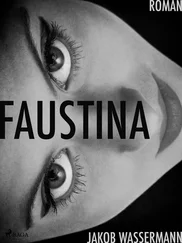‘Your love line is withered. Perhaps you haven’t got a heart, Alexander?’
‘That could be,’ I replied, ‘but the one you’re looking at is understanding, so far as I know.’
‘Oh, is it?’ she says in relief. ‘Thank God for that.’
Her conclusion is that she perhaps needs to offer me more, be more alluring. She buys a sophisticated scent for a lot of money and douses herself with about a teaspoonful of it (which is certainly too much).
‘I’m not sophisticated enough,’ she laments, with an undertone of pride, ‘I have no gifts as a seductress.’
‘No, you’re right about that, Ganna,’ I tell her, and take the opportunity to tell her she should stop slouching about the place as she does. She heeds my advice, and for thirty-five crowns buys a fake Japanese kimono that makes her look like Sarastro in The Magic Flute . The slippers she wears with this prize piece are ancient and filthy, and seeing that she also doesn’t pull up her stockings until and unless she’s getting ready to go out, they look like a pair of sausage skins hanging down her legs, where the kimono stops. When she gets wind of my disapproval, she says crossly: ‘All right, the garter ribbons are torn, but surely that’s nothing to do with the human side.’ Of course not, I never said it was. But the ‘human side’ isn’t a reserve fund that you can draw on in exalted hours, and at others licenses the fake kimono, ragged slippers and baggy stockings …
THE SCREAM IN THE NIGHT
At this time, there is the following development with Ganna. If we’ve had a quarrel or difference of opinion in the day, her resentments and rancour, which are intensifying all the time, accumulate in sleep, until she frees herself of them in an eruption. Then she screams. Usually, a single, piercing, terrible scream, which rings through the entire house and wakes up all its inhabitants. By and by this scream becomes a fearsome event for me, something that cuts into and darkens my life. I wake up, when it rings out, as if to the feeling of a skewer being driven through my head, in one ear and out the other. I lean over her in the dark, I talk to her, I try to calm her down. (Later on, when we were no longer sleeping in the same room, I dashed into her room with shudders running down my spine; sometimes I had the suspicion that with that terrible screaming she was trying to force me back into her bed; not consciously; but so as not to be alone any more; so as not to let me forget that she existed in my life; from envy of my sleep; who could tell what it was with her?) She tells me the dream she awoke from. They are often strange dreams, dreams of a hopeless, betrayed, tormented soul; dreams with a quality of primal darkness, something bizarre like everything in her unconscious. For instance she once dreamed of Irmgard, standing before her with red hair and a bloodied mouth; her mouth was bloodied because she was holding Ganna’s heart in her hand, and biting into it every so often, as into a red apple.
The person I am holding in my arms to comfort is the mother of my children, not a woman, not my wife. Her accumulated pains, complaints and reproaches are poured out over me in a flood. In her fevered eloquence she loses herself in detail, mixes up things that happened yesterday with others that happened long ago, imagined things with others that are true or half-true, and if I manage to refute one charge, she comes at me with another one that I’ve refuted three times already. It’s as if someone, in ignorance of the pattern on the front side of a rug, were picking at loose threads on the back, and with a sore finger. Her brain is a reservoir for all the murky waters that have poured into it for days past, and are now threatening to overflow. Irmgard, always Irmgard. Where I saw her, how long we spent together, what we talked about.
‘If you deceive me, Alexander, I don’t know what I’ll do, I think I’ll kill myself.’
Followed by the accusation that I undermine her authority with the staff.
‘But Ganna, you don’t have any authority with the staff.’
I cancelled her instructions, she says.
‘Of course I do, when they don’t make any sense.’
Hadn’t I calmly stood by the day before yesterday and listened to the impertinence from the Mam’selle?
‘I couldn’t very well take your side, you treated her like a dog.’
This drives her wild.
‘Well, really, Alexander, really …’
The murky waters continue to spill out of her without cease; staring out into the darkness, I have the feeling my head is about to burst open. Now the subject has come around to money. That my pocket money is never enough for me; that the capital is dwindling from year to year like snow in the sun; that that bastard Fürst has yet to repay a penny of what he owes me. Did I want the children to live in penury? And my own coldness, my lack of love.
‘But Ganna, Ganna, how can you! Cold, me?!’
Yes, wherever I could I would ignore her; accepted invitations from my aristo pals and went round to see them without her. Was it that I was ashamed of her?
‘Tell me truly, Alexander, are you ashamed of me?’
My head is reeling. ‘Go to sleep, why don’t you,’ I say, ‘please, enough …’
DEATH OF HER FATHER, INSANITY OF HER MOTHER
In summer 1905, Professor Mevis died of a coronary. Ganna’s grief was dramatic. Thus far, she had been so spoiled by fate that she hadn’t had to think about death at all. How could death suddenly intrude, and bring down the sacred paterfamilias? She embarked on a programme of idolatry towards the departed. She collected relics, pictures of him, sayings of his. She wove legends. She planned to write his life story. She claimed — to the annoyance of the sisters — to be his favourite; she believed it too, implicitly.
But the man himself was no longer there, the man with the iron fist. The one the mere mention of whose name had made her sit up. The dealing in images and idols was her last respect to him. Now, she need fear no other man.
Shortly after the Professor passed away, Frau Mevis needed to be institutionalized for a couple of months. The ancient hulk had given way to the pressure of the waters. The removal of the spiritual straitjacket had liberated the illness. Ganna would go and visit her mother once or twice a week. Every time, she pleaded with me to go with her. One day I went. We were taken to a room with barred windows. The madwoman sat in an armchair, furiously shredding a newspaper. She always needed to have something to destroy — letters, a book, an item of clothing. Sometimes she smeared the walls with filth.
She seemed to take no pleasure in our having come. With hectic shining eyes and hoarse voice, she complained that she was being unlawfully detained; she had written to the Emperor to let him know. Ganna addressed her tenderly; I couldn’t manage to get a word out. Much as I’d sympathised with the old lady in quieter days, I found her repulsive now, really hateful in her illness. The sick spirit doesn’t excite sympathy like the sick body, but fear and revulsion. The thought that some of the blood of this disturbed person was flowing in the veins of my children was appalling. ‘Is he always so quiet, your beloved, or have you done something to him?’ She turned to her daughter with a hideous grimace. Ganna took it as a cue to launch into a paean of praise of me and our marriage. Thereupon the sick woman started to rave about my latest book in embarrassingly hyperbolic terms and to assure me that all the denizens of the establishment had read it with enthusiasm. It was more than I could stand to hear. ‘Let’s go, Ganna,’ I urged. As we stepped through the gate I mumbled goodbye and ran off.
TWO SPEEDS
There is a lot to this. It reaches into the nerve endings, the mood, the sexual embrace. It’s most clearly visible, of course, in walk and stride patterns. ‘Can’t we go for a walk,’ begs Ganna, ‘forget your appointments, go on, please.’ I consent. But the gladly begun enterprise ends in strife and disagreement. She’s not up to any physical exertion but won’t admit it, and accuses me of tiring her out on purpose, so as to prove her unsuitability. I bite back a reply to the ugly accusation — I can’t always take issue with her, this Ganna dialectic can drive you mad. To go for a walk with her — fine. But I go off the idea as soon as I witness her preparations. She’s not ready in time. I prefer to be unencumbered, she lugs around everything she deems indispensable: a book, a heavy overcoat, a blanket to put on the ground, an umbrella in case it rains, even if the heavens are cloudless, a bag of provisions, notebook, salves and ointments, loose leaves of paper and a straw hat whose elastic she loops round her wrist. She can’t carry it all, I have to help her. She wants to march, she wants to enthuse. I hate raving about scenery; she’s in transports over every green or brown hill. In her delight she links arms with me, but as that compels me to fall in with her stride, which means setting one foot ponderously in front of the other like an invalid, I break free and hurry on ahead. (I walk fast, just as I breathe fast and eat fast and, yes, live fast; how could we ever fall in step like two of a kind? It’s a physical impossibility.) Then Ganna’s bitterness breaks out of her. A woman who has given birth to two babies and breast-fed them both for eight months deserves respect and not uncouth behaviour like mine, the long face, the merciless hurrying and geeing-up. She’s right; I am not sparing enough of her; I let her sense her physical weakness; I am not courtly; it’s all true. If only she hadn’t said the thing about bearing the children, though. To her the bearing and feeding of children is what victorious battles are to a general — praiseworthy deeds for which she deserves a medal, as if children come into this world by some secret ruse of man, and woman, the innocent victim, needs to pay all her life for that vicious breach of trust. Once Ganna has taken a dialectical fortress, she doesn’t stop. What has she done, she rhetorically asks the sky, what has she done to end up living with such a beastly egoist, she who is so absurdly modest, she who — God is her witness — has long ago given up wanting anything for herself, who sits around at home for days on end all alone while he diverts himself in all sorts of ways …
Читать дальше







![Jakob Wassermann - Issue Does Not Exist],errors:{](/books/585068/jakob-wassermann-issue-does-not-exist-errors-thumb.webp)




